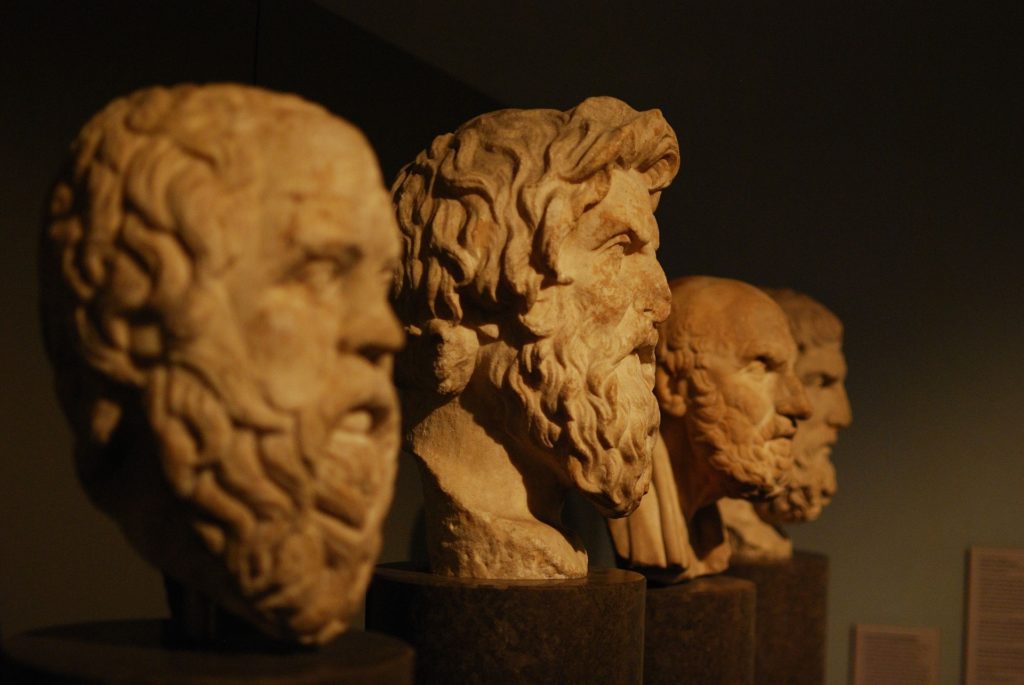 Writing about Aristotle criticizing Epicurus we should bear in mind that the situation is purely imaginary because Aristotle died when Epicurus was only 19 (in 322 BC) and had no time to create any philosophical theory. It is highly probable that Epicurus was aware of Aristotle’s teaching and included some elements of it in his own philosophy. The notion of pleasure is in the centre of Epicurus attention and he does not make difference between the words “sweetness”, “pleasure”, “happiness” and ‘well-being”. Aristotle’s definition of “pleasure” is more restricted and clearly differs from “happiness”. The comparison of views of two famous philosophers on “pleasure” will show to us how Aristotle would criticize Epicurus.
Writing about Aristotle criticizing Epicurus we should bear in mind that the situation is purely imaginary because Aristotle died when Epicurus was only 19 (in 322 BC) and had no time to create any philosophical theory. It is highly probable that Epicurus was aware of Aristotle’s teaching and included some elements of it in his own philosophy. The notion of pleasure is in the centre of Epicurus attention and he does not make difference between the words “sweetness”, “pleasure”, “happiness” and ‘well-being”. Aristotle’s definition of “pleasure” is more restricted and clearly differs from “happiness”. The comparison of views of two famous philosophers on “pleasure” will show to us how Aristotle would criticize Epicurus.
Epicurus considers pleasure as “the beginning and end of the blessed life” (176 Epicurus) and recognizes it “as the first good innate in us” (176 Epicurus) from which “we begin every act of choice and avoidance”. Pleasure to his mind can be used “as the standard by which we judge every good”(176 Epicurus). In such a way he takes the pleasure as a universal measure of human life. According to Epicurus pleasure consists in avoiding pain and fear. But never the less pain being the contrary of pleasure is necessary in human life “since a greater pleasure comes to us when we have endured pains for a long time” (177 Epicurus).
Aristotle supports the view of his teacher Plato that pleasure is not the universal good and that a really pleasant life requires wisdom. At the same time, he is warning us about “the disgraceful pleasures” which can be pleasant only “to people of vicious constitution”. Aristotle is not satisfied by the general notion of pleasure he distinguishes in it “the passive and the active factors” i.e. “the intelligible or sensible object and the discriminating and contemplative faculty”. Aristotle stresses that “without activity pleasure does not arise and every activity is completed by the attendant pleasure”. For him only “virtue and the good man” are “the measure of each thing”.
In such a way, Aristotle would criticize the Epicure’s notion of pleasure as very broad and universal on the one hand and as excessively important and fully equivalent to the good on the other. He would argue that only pleasures approved by the virtuous man can be considered as real pleasures. He would stress in difference with Epicurus that the only source of pleasure is human activity.
Works Cited: (all from the course pack)
- Epicurus, Letter to Menoeceus, Glencoe, Illinois: Milton K. Munitz, 1958.
- Murray, Gilbert, Epicurus and his school. Glencoe, Illinois: Milton K. Munitz, 1958.